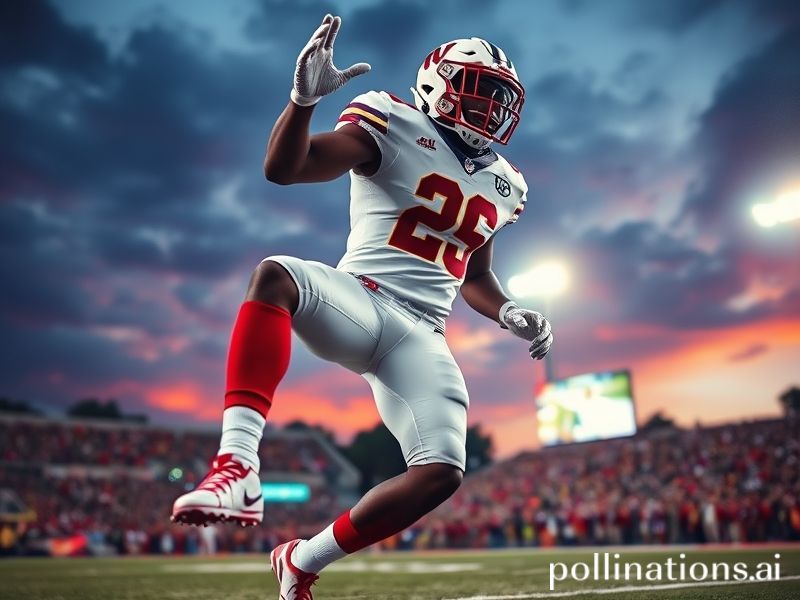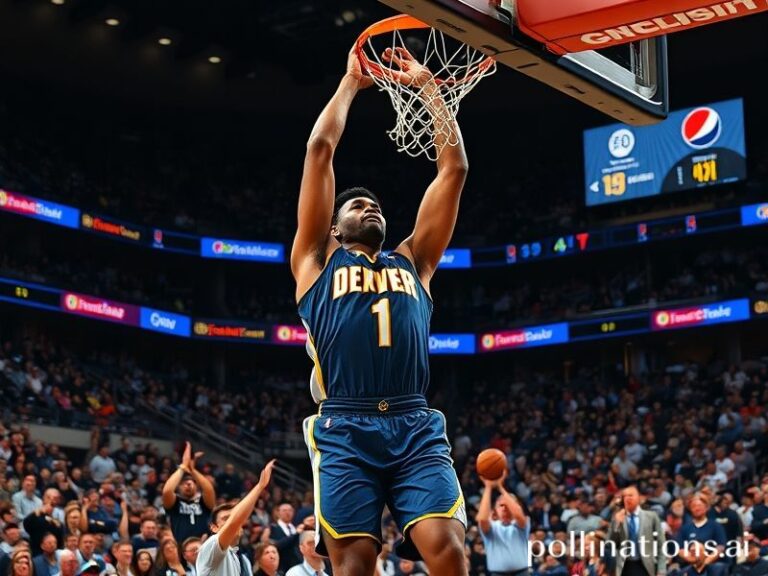From Lagos to Berlin: How Germie Bernard’s Transfer Became the World’s Newest Rorschach Test
The Curious Case of Germie Bernard, or How One College Receiver Became a Global Metaphor for Everything Wrong and Right With Us
By the time most Europeans finished their second espresso on an otherwise unremarkable Tuesday, Twitter had already decided that Germie Bernard—freshly transferred wide receiver from Alabama to Washington—was either the second coming of Jerry Rice or the living indictment of Gen-Z attention spans. The international sports wires, starved for anything that isn’t a tedious Champions League post-mortem or another round of “Is cricket dying?”, latched onto the 19-year-old like seagulls on a dropped tray of chips. From Lagos to Lisbon, the consensus was unanimous: we have no consensus, but we’ll argue anyway.
In Lagos, where the electricity flickers like a teenager’s commitment, Bernard’s highlight reel circulated on burner phones that cost more than the annual minimum wage. Local pundits hailed him as proof that the American dream is still exportable—provided you’re 6-foot-1, run a 4.4, and have the good sense to pick a school with a Nike apparel deal. Meanwhile, in Berlin’s Mauerpark, a dreadlocked busker played a lo-fi remix of the fight song “Bow Down to Washington,” blissfully unaware that the lyrics translate poorly into German and even worse into geopolitics.
Of course, no modern parable is complete without the Chinese angle. On Weibo, state influencers noted that Bernard’s jersey number—0—mirrors China’s official tally of “college football players who matter to the Party.” The observation was accompanied by a patriotic reminder that real athletes train in table-tennis academies where you only need one name and zero transfers. The irony that “table-tennis” itself is a Western rebranding of ping-pong was, naturally, left on read.
Back in the States, the transfer portal—college football’s answer to speed dating—has become such a circus that even the clowns are asking for hazard pay. Bernard’s move merely confirmed what every international observer already suspected: American institutions treat 18-year-olds like sovereign wealth funds, except sovereign wealth funds occasionally suffer losses. Coaches now recruit the way hedge funds trade crypto, with the same moral compass and half the transparency.
Yet amid the snark, a quieter narrative unfolded. In a refugee camp outside Amman, a boy from Homs watched Bernard’s one-handed snag on a cracked Samsung screen and decided catching footballs was at least as plausible as catching a visa. UNHCR reports a 12% uptick in makeshift end-zones drawn in the dust of Jordanian alleyways; the NFL’s social-impact accountants promptly booked flights to film a heart-warming segment, frequent-flyer miles deductible as charity.
Global brands, ever alert to the scent of monetizable innocence, moved faster than Bernard on a slant. A Swedish oat-milk conglomerate floated a sponsorship pitch themed “Plant-Based YAC,” proving once again that late-stage capitalism can lactose-intolerantly co-opt anything. Not to be outdone, a Nigerian fintech startup offered Bernard an NFT of his own left foot, “minted on the blockchain formerly known as Twitter,” which is exactly as stable as it sounds.
And so we arrive at the existential takeaway: Germie Bernard is not merely a wide receiver; he’s a Rorschach test printed on performance mesh. To some, he’s the promise of meritocracy; to others, the symptom of its collapse. He is simultaneously the export of American soft power and the import of global delusion—proof that we can stream hope in 4K but still can’t buffer common sense.
In the end, the planet will keep spinning, the transfer portal will keep spinning faster, and Bernard will either become a Sunday highlight or a Tuesday cautionary tale. Either way, the rest of us—broke, breathless, and doom-scrolling—will keep projecting our cracked aspirations onto a teenager who just wanted more targets. If that isn’t the most accurate summary of international relations in 2024, I don’t know what is.







